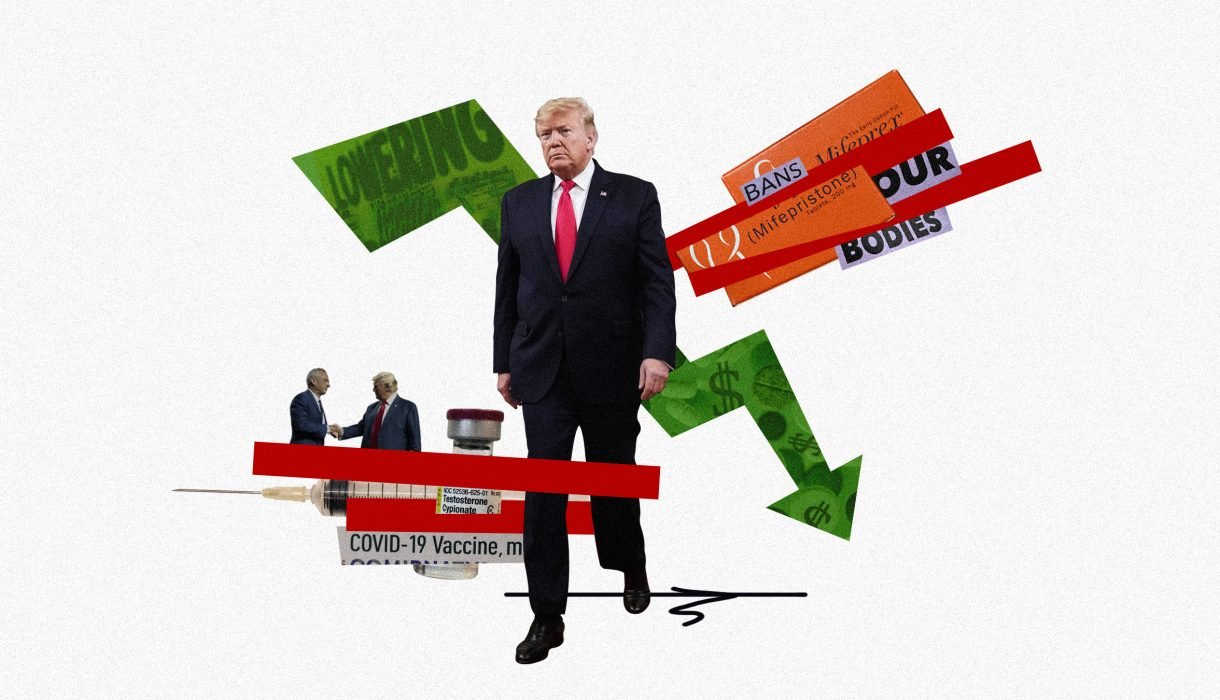
Presidential Obedience: A Dive into Public Perception and Immigration Policies
Posted in :
Public Opinion on Trump, Courts & Immigration Policies
I vividly remember the day I stumbled upon a poll that revealed how Americans perceive presidential obedience to court rulings. It was March 25, 2025, and as I read through Jason Lange’s insightful article, I found myself reflecting on the implications of law and authority in our political landscape. It sparked a deeper exploration into the nuances of American attitudes toward immigration policies, especially in light of Donald Trump’s controversial administration.
Public Consensus on Presidential Obedience
In a recent poll, an overwhelming 82% of Americans expressed their belief that the President of the United States should adhere to federal court decisions. This statistic is not just a number; it reflects a deep-rooted expectation that the executive branch respects the rule of law. Isn’t it fascinating how a significant majority can agree on such an essential aspect of governance?
Bipartisan Agreement
What’s even more interesting is the bipartisan nature of this support. Both Democrats and Republicans largely agree on this principle. This consensus suggests that, regardless of party affiliation, there is a shared understanding of the importance of judicial checks on executive power. It raises the question: why is it so crucial for the President to follow court rulings?
- 82% of Americans support adherence to court rulings.
- Bipartisan agreement among Democrats and Republicans.
- Judicial checks are vital for maintaining balance in government.
As a political analyst noted,
“The judiciary plays a critical role in maintaining the balance of power in our government.”
This statement underscores the judiciary’s function as a counterbalance to the executive branch. Without this balance, we risk sliding into a system where the President can act without accountability.
The Polling Details
The poll, conducted with a sample of 1,030 U.S. adults, had a margin of error of 3 percentage points. This method ensures that the findings are representative of the broader population. It’s crucial to understand how such data is collected. Polling methods can greatly influence the results, and in this case, the methodology appears sound.
Support Across Party Lines
While the overall support for judicial adherence is strong, the poll also revealed some interesting nuances. For instance, when it comes to immigration policies, opinions diverge significantly. A notable 76% of Republicans supported the continuation of deportations, even when federal judges issued orders to halt such actions. In stark contrast, only 8% of Democrats agreed with this stance. This disparity raises an essential question: how do we reconcile the need for law enforcement with respect for judicial authority?
It seems that while Republicans generally support the idea of judicial oversight, many are willing to compromise this principle when it comes to immigration policies championed by former President Trump. This contradiction illustrates a complex relationship between party loyalty and adherence to the rule of law.
Judicial Confrontations
During Trump’s presidency, there were significant confrontations between his administration and the judiciary over immigration policy. For example, the administration attempted to use an 18th-century law to deport migrants linked to a Venezuelan gang, despite a judge’s order against such actions. This situation raises concerns about the potential for executive overreach. Are we witnessing a shift in how the executive branch views judicial authority?
As we analyze these findings, it becomes clear that the public is not only concerned about immigration but also about the broader implications of presidential power. The poll results reflect a desire for accountability and a system of checks and balances that is fundamental to our democracy.
Insights
In summary, the overwhelming support for presidential adherence to court rulings highlights a critical aspect of American governance. The bipartisan agreement among the populace suggests a collective understanding of the importance of judicial checks on executive power. As we navigate these complex issues, it’s essential to keep the conversation going. How can we ensure that our leaders respect the rule of law while also addressing pressing issues like immigration?
Diverging Views on Immigration Policies
Immigration policies have become a hot-button issue in American politics. The divide between Republicans and Democrats is stark. Recent polls reveal that a significant 76% of Republicans support continued deportations. In contrast, only 8% of Democrats agree with this stance. This gap illustrates a fundamental difference in how each party views immigration enforcement.
Republican Support for Deportations
Why do so many Republicans favor deportations? The answer lies in their perception of immigration as a critical issue. Many believe that strict enforcement is necessary to maintain order and security. This sentiment is echoed in the findings of a recent survey, where a large majority of Republicans expressed support for the Trump administration’s immigration agenda. Even when faced with court rulings that challenge these actions, they remain steadfast.
- 76% of Republicans support continued deportations.
- Trump’s immigration agenda is prioritized despite court rulings.
Democratic Opposition
On the flip side, the Democratic perspective is quite different. Only 8% of Democrats support the idea of deportations. For many in this party, immigration is viewed through a lens of compassion and human rights. They argue that deportations can tear families apart and lead to unnecessary suffering.
So, what does this mean for American society? It suggests a growing divide in moral perspectives on immigration. The Republican stance emphasizes law and order, while Democrats focus on empathy and human rights. This contrast is not just a political debate; it reflects deeper values within each party.
The Role of Courts
Interestingly, while a majority within Trump’s party regard courts as important checks on presidential authority, their support for prioritizing immigration enforcement is higher. This raises a question: how do we balance the need for enforcement with the rule of law? The Trump administration often criticized federal judges who blocked their executive actions. Yet, many Republicans seem willing to overlook judicial rulings when it comes to immigration.
“Immigration enforcement has always been a polarizing issue, especially in today’s political climate,” explains an immigration policy expert.
Shifting Moral Lines
As we analyze these trends, it becomes clear that the moral lines are shifting. The significant support for Trump’s deportation efforts among Republicans indicates a willingness to compromise on traditional values regarding judicial authority. This is a notable change in the political landscape.
For example, the Trump administration’s attempts to invoke an 18th-century law to deport migrants linked to a Venezuelan gang, despite a judge’s order, exemplifies this tension. Such actions raise concerns about the potential violation of judicial authority. Are we witnessing a new era where executive power is prioritized over judicial oversight?
Public Sentiment on Trump’s Presidency
Public opinion on Trump’s presidency also reflects these dynamics. A recent poll indicated that 45% of respondents approved of his performance, with immigration policy being a strong point of support. Approximately 49% of those surveyed approved of his immigration measures. This approval contrasts sharply with lower ratings in other areas, such as economic management and foreign policy.
- Only 38% approved of Trump’s handling of the economy.
- Just 34% felt he was effectively addressing cost of living concerns.
- Only 37% believed he was performing well on foreign policy issues.
This paints a complex picture of Trump’s presidency. While he enjoys robust approval for his immigration policy, significant challenges remain in other critical areas. It’s a reminder that support for a particular policy does not necessarily translate to overall approval of a leader.
As we navigate these discussions, it’s essential to consider the implications of these diverging views on immigration policies. The ongoing debate reflects broader questions about American values, the role of government, and the balance between enforcement and compassion.
Contradictory Public Perception of Trump’s Presidency
Donald Trump’s presidency has been a rollercoaster ride of opinions. It’s fascinating to see how public perception can swing so dramatically. Recent polls reveal that only 45% of Americans approve of Trump’s overall performance. Yet, when it comes to his immigration initiatives, that approval rating jumps to 49%. This disparity raises some important questions. Why do people support him on immigration but not on other issues? What does this say about the current political climate?
Mixed Sentiments
Overall, opinions on Trump’s presidency are mixed. Many people appreciate his hardline stance on immigration. However, they express significant concerns about his management of the economy and foreign policy. This duality is intriguing. It shows that while some policies resonate with the public, others fall flat.
To break it down further, let’s look at some key points:
- 45% overall approval of Trump’s performance.
- 49% approval rating for immigration initiatives.
- Challenges in economic management and foreign policy performance.
Immigration Initiatives: A Double-Edged Sword
Trump’s immigration strategy has been a focal point of his presidency. Many Americans support his tough stance on illegal immigration. This support likely stems from a desire for stronger border security and a belief in law and order. However, this approval does not translate to confidence in his overall leadership. As a political commentator noted,
“While immigration gains Trump’s support, his presidency is still marred by economic discontent.”
This statement encapsulates the paradox of Trump’s presidency.
Many voters appreciate his efforts to curb illegal immigration. They see it as a necessary step in protecting American jobs and resources. However, this same group often expresses frustration over economic issues. For instance, only 38% of respondents approved of Trump’s management of the U.S. economy. This is a stark contrast to the immigration approval ratings. Why is there such a divide? Perhaps it reflects a broader concern about the state of the economy and the cost of living.
Challenges in Economic Management and Foreign Policy
When we look at Trump’s performance in economic management, the numbers tell a troubling story. Only 34% of people believe he is effectively addressing cost of living concerns. Furthermore, just 37% think he is handling foreign policy well. These figures indicate a significant disconnect between his immigration policies and other critical areas of governance.
It’s essential to consider how these challenges impact public perception. If a president excels in one area but falters in others, how does that affect their overall approval? In Trump’s case, it seems that immigration policies provide a boost, but they are not enough to overshadow the discontent surrounding economic issues.
Comparative Approval Figures
Looking at comparative approval figures can help us understand shifts in public sentiment. For instance, Trump’s current approval rating of 45% is an improvement from earlier in his presidency. This suggests that some voters are reassessing their opinions. Perhaps they see a stronger emphasis on immigration as a positive change.
However, it’s crucial to remember that public opinion is fluid. As new issues arise, perceptions can shift. For example, if economic conditions worsen, we might see a decline in Trump’s approval ratings. Conversely, if immigration policies yield positive results, his ratings could improve further.
Conclusion
In summary, the public perception of Trump’s presidency is a complex tapestry of approval and discontent. While he enjoys notable support for his immigration initiatives, significant challenges remain in economic management and foreign policy. The mixed sentiments highlight the intricate balance voters seek between strong leadership and effective governance. As we move forward, it will be interesting to see how these perceptions evolve. Will Trump’s immigration policies continue to bolster his approval, or will economic concerns take center stage? Only time will tell.
TL;DR: The recent Reuters/Ipsos poll shows a complex interplay between American views on presidential power and judicial rulings, particularly in relation to immigration policies during Trump’s presidency.
- presidential obedience to courts, Trump immigration policies, public perception of Trump, judicial vs executive power, immigration poll 2025, Republican vs Democrat immigration views, court rulings and presidential power

